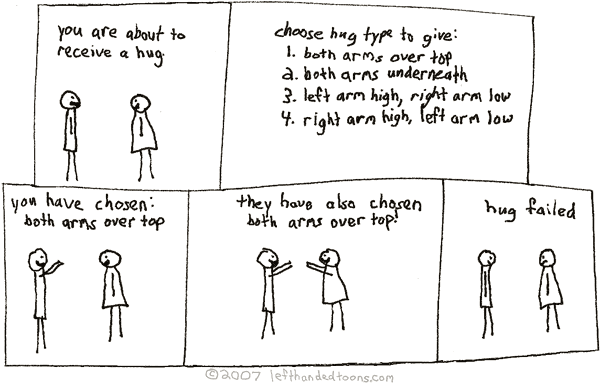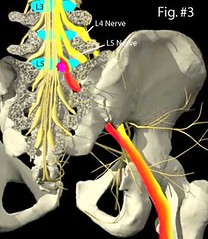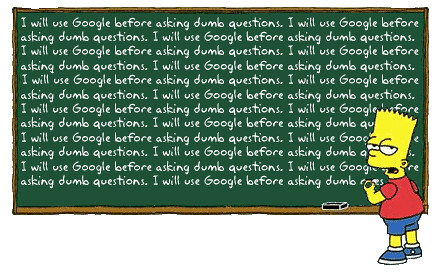 Everyday we are confronted with numerous occasions which call for decision-making, and quite often the decisions are related to numbers.
Everyday we are confronted with numerous occasions which call for decision-making, and quite often the decisions are related to numbers.
For example, given two options of sugar in a supermarket,
- A one-kilogram package which costs one dollar,
- A five-kilogram package which costs four dollars.
Which one would you buy?
Some people reckon that the latter is the better choice, since it is "just eighty cents per kilo". However, some others might say that the former is better because you do not risk the sugar expiring before you finish it, the quality might deteriorate if it's left for too long, "you do not need five kilograms anyway", and so on. Well, there's no clear winning side here, as each pros and cons are weighed differently by different people.
On another occasion, a similar dilemma arose in the issue of
tram tickets. As a background, there are a few choices for the prepaid
tram tickets, namely two-hourly tickets, daily, and 10 X two-hour. Daily is out of the question because it could be replaced by an equivalent of two two-hourly tickets. So We could buy separate two-hourly tickets (which cost 3.30 dollar each) or buy a ticket with 10 two-hourly values (which costs 27.60 dollar).
Naturally, 10 X two-hourly ticket seems to be the best option. But here comes the real problem - how many of them should we buy? We know very well that there is a price increase every year or two, so if we stock up the tickets we would not need to buy expensive tickets in the future. However, buying lots of tickets turned out not to be the best choice after all - we figured out that at the present rate of bank interest and the predicted price increase every year, we might as well buy the ticket after the price increase, because by that time the bank interest we earn would have covered the price difference. It's quite a bit of tricky maths.
The last case I would like to talk about here is related to medicine. You might think, hey, what does medicine have to do with mathematics? Is it the doctor's bills? Hah let me reassure you that billing is not the main use of maths in medicine. As I mentioned in
another post, a lot of medical researches deal with
epidemiology and statistics which involve a lot of mathematical application.
Amidst the figures of risks, benefits, odds, ratios and so on, it's very common for people to be misled by default or by design. Take this example:
They [Tom Fahey and colleagues] wrote to 182 board members of district health authorities in England (all of whom would be in some way responsible for making important health service decisions), asking them which of four different rehabilitation programmes for heart attack victims they would prefer to fund:
- Programme A reduced the rate of deaths by 20%;
- Programme B produced an absolute reduction in deaths of 3%;
- Programme C increased patients' survival rate from 84% to 87%;
- Programme D meant that 31 people needed to enter the programme to avoid one death.
Before you read on, give it a second of thought - which one would you choose? Which one is the most effective, and which one is the least effective?
The book author, Greenhalgh, proceeded to tell us the right answer: all of them are describing
the same effect. Many of the health authorities (and I believe many of us as well) didn't notice it:
Of the 140 board members who responded, only three spotted that all four "programmes" in fact related to the same set of results. The other 137 preferred one or other of the programmes, thus revealing (as well as their own ignorance) the need for better basic training in epidemiology for health authority board members.
As a numerical example, let's say when the patients do not enter any program, 84 out of 100 patients survived; while for the rehabilitation program, 87 out of 100 patients survived. Rate of death is reduced from 16% to 13%, and therefore:
- A) It's a (16-13/16) X 100% ≈ 20% death reduction .
- B) The absolute death reduction is 16% - 13% = 3%.
- C) From the figure directly.
- D) Since the absolute death reduction is 3%, it means that 3 out of 100 patients have benefited through the rehabilitation program. That ratio is equivalent to 1 in 30 patients saved (rounded to the nearest ten, considering the significant digits).
It's amazing just how manipulable our mind is when it comes to numbers. The next time when you see a promotion claiming "buy two free one", remember that it's equivalent to 33% discount. For some reasons, "buy two free one" might seem more attractive to certain people than, say, 40% discount.
Errm.



















3 comments:
Post a Comment